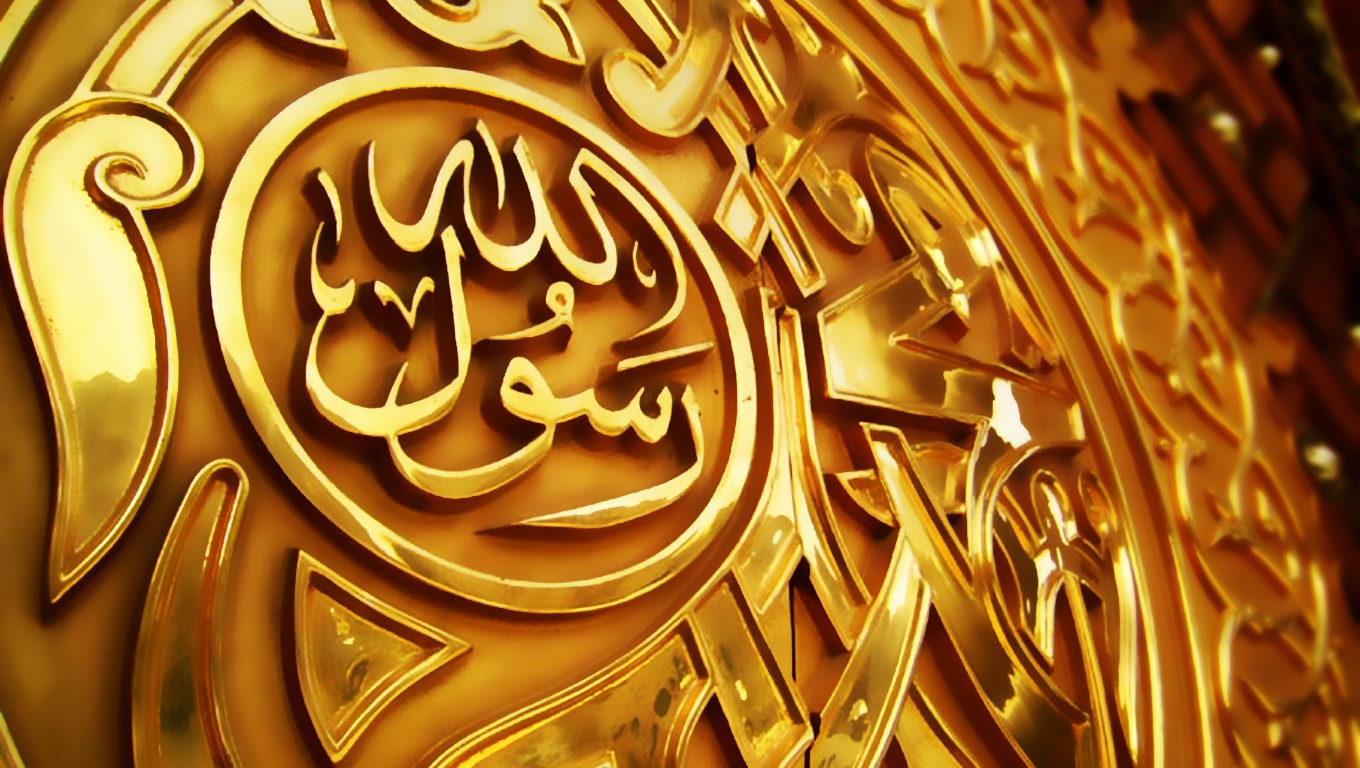
The year the Prophet (s) was born, a number of foster families from the Banu Sa’ad bin Banu Bakr came to pick up newborns from the elite families of the Quraysh for suckling and rearing.
It was a common practice of the rich families of the Quraysh to send their newborns to a wet nurse to raise them for a couple of years. And they did so for multiple reasons. First, the newborns would spend their early years in the pure, pollution-free environment of the desert. Second, they would learn the classical Arabic language of the Bedouins (and Banu Sa’ad were famous for their literary qualities). Third, they would grow up strong, having been raised in the harsh desert climate. Finally, fostering was simply a status symbol in those days.
The women of the Banu Sa’ad passed over baby Muhammad because they did not expect much reward from an orphan’s family. Halimah bint Dhu’yaib Al-Saa’diyah was one of those who passed over the orphan child. But when other women chose babies to take home and she had none, Halimah felt embarrassed. At that point, her husband, Haarith, said, “Take Muhammad. It may be that Allah will bless us through this child.”
Halimah’s family was extremely poor, especially that year, as they had been struck by a severe drought. She had come to Makkah riding on a lean mount, and her herd did not produce much milk. Because of the effects of starvation, she herself could not generate enough milk for her own children.
But soon her husband’s hopes and prayers were to be realized. No sooner had they picked up baby Muhammad than their condition began to change. Her riding animal suddenly became the fastest in the group, and milk started to flow both in herself and her herd. People were shocked. Halimah said that her herd would return home in the evening with their udders filled with milk, even though there was still no vegetation in the area. The blessings were all too evident for people to see.
More than forty years later, when chapter 93 was revealed, Allah informed the Prophet how he was helped in childhood, as well as in later years:
By the forenoon. By the night when it darkens. Your Lord has neither forsaken you nor hates you. And indeed the Hereafter is better for you than the present. And verily, your Lord will give you so that you shall be well-pleased. Did He not find you an orphan and gave you a refuge? And He found you unaware and guided you? And He found you poor and made you rich? Therefore, treat not the orphan with oppression. And repulse not the one who asks. And proclaim the grace of your Lord.1
Although Ibn Isshaaq did not mention it in his biography of the Prophet, there are reports that two other women besides Halimah also suckled baby Muhammad. One was Thuwaybah Al-Aslamiyah, a maidservant of Abu Lahab, the Prophet’s uncle. She was the first to suckle but did so only briefly. Then there was also a woman named Khawlah bint Al-Mundhir bin An-Najjaar.
Yet another woman who played a crucial role in the life of the Prophet was Umm Ayman, also referred to as Barakah. She was not a foster mother but the right hand of the Prophet’s mother, Aaminah. She took care of baby Muhammad when Aaminah passed away. She was first married to Ubayd bin Zayd, from the Khazraj tribe, from whom she had a son named Ayman. After Ubayd’s death she married Zayd bin Haarithah, the Prophet’s so-called adopted son, from whom she had Usaamah. She was a freed Abyssinian slave, but the Prophet treated her like a member of his family, in complete rejection of the society’s treatment of slaves. The Prophet once said, “Umm Ayman is the last of my family, and she was to me a mother after my mother had passed away.”2
Foster Siblings and a Terrifying Incident
Halimah and Haarith had several children of their own: Abdullaah, Aniyah, Hudhaafah, and Hadh-dhaaqah, popularly known as Ash-Shaymaa. It seems Abdullaah was approximately the same age as the Prophet.
Shaymaa used to help her mother in taking care of baby Muhammad. She bathed him, took him for walks, and always embraced him with love. When it came time for him to return to his mother, she was very sad to see him leave. Her story came to light after the Battle of Hunayn, which will be told in detail in another chapter. The Prophet’s encounter with his long-lost foster sister after the Battle of Hunayn showed his sense of gratitude for those who did a favor for him. He told his followers that thanking people was akin to showing gratitude to God: “He who does not thank people does not thank Allah.”3
For Halimah, the time to part with this blessed baby came too soon. But the fact was that two years or so had passed like a fleeting moment, and it was the agreed-upon time to return the baby Muhammad to his mother. Grudgingly, Halimah took the baby back to Aaminah, all the while wishing she could find a way to keep him for a little longer. Upon arrival in Makkah, Halimah begged Aaminah to let her keep the baby for a few more months. Aaminah, noticing Halimah’s love for and bond with her son, agreed, although it was hard on her.
It was during this second fostering period that one day Halimah’s children came running to her, scared and shouting that their Qurayshi brother had been murdered. Halimah and her husband, Haarith, ran out, only to find the child Muhammad sitting pale-faced. When asked, the child said, “Two men in white dress came and threw me down and opened up my belly and searched inside for something.” Halimah and Haarith looked at his chest, but there was nothing except a scar.
Later on, after he had become a Prophet, he told his Companions what had happened.
Anas bin Maalik, a servant of the Prophet, narrated that “Jibreel came to the Messenger of Allah when he was playing with the other boys. He took hold of him and threw him to the ground, and then he opened his chest and took out his heart, from which he took a clot of blood and said, ‘This was the Shaytaan’s share of you.’ Then he washed it in a vessel of gold that was filled with Zamzam water. Then he put it back together and returned it to its place. The boys went running to Halimah and said, ‘Muhammad has been killed!’ They went to him and his color had changed. Anas said, ‘I used to see the mark of that stitching on his chest.’”4
The first incident scared Halimah and her husband, who said, “Let us return this boy back to his mother before something happens to him.” So they took the child back to Makkah and hesitatingly told Aaminah what had happened. To their surprise, Aaminah, unlike most mothers, did not show a sudden anxiety but instead said that she believed great things were in store for her son. She took this incident as a sign of the miraculous things to come.
When the Prophet was six years old, Aaminah went to Yathrib (later to be called Madinah) to visit her husband’s grave or perhaps to visit the Prophet’s great-grandmother’s family, who were from the tribe of Banu Najjaar. Destiny had brought her to Yathrib. She fell ill on the way back to Makkah and died in a place called Al-Abwaa. Just six years earlier, the Prophet’s father, Abdullaah, had also died in Madinah. Now the young child had neither father nor mother.
It has been recorded that once while the Prophet was traveling with his Companions, he left the main road and kept walking until he reached a grave. The Companions simply followed, not knowing why he had done so. Then they saw the Prophet crying until his thick beard became wet. They also began to cry at the Prophet’s unexplained sorrow.
Then he turned to them and said, “This is my mother’s grave. Before I had asked you not to visit the graves, but I asked Allah to allow me to visit my mother’s grave and my request was granted, so I am permitting you now to visit graves.”5 Then he told them the reason for his tears: Allah had not permitted him to pray for his mother.
The Grandfather Becomes Guardian
Abdul Muttalib was in awe of his grandson. He loved him so much that he went beyond normal conventions to accommodate him. Abdul Muttalib had a raised platform adjacent to the Ka’bah where he would sit and hold court. Nobody else was allowed to sit there. Once when his beloved grandson ran onto the stage, the boy’s uncle Zubayr quickly tried to pull him back, but Abdul Muttalib said, “Let him be.”
Another time the uncles sent young Muhammad to look for a lost camel when he may have been seven or eight years old. Abdul Muttalib became upset that they had sent the young grandson out of his sight. They said they had dispatched him only because they had noticed that whatever their nephew did, he was successful at it. People couldn’t help but observe that this boy was different from his peers.
Another Trauma Afflicts the Prophet
While life was passing comfortably for the young Muhammad in the company of his grandfather, this era also was soon to come to an end. Abdul Muttalib was becoming weak with old age, and shortly he, too, died. The future Prophet was 8 years old. In human history few children have been tried with such traumas as the Prophet Muhammad. And there clearly seems to be a divine wisdom behind these frequent tragedies: Allah wanted His Messenger to be prepared for the hardships that were to be put on him. Surely, one of the Makki (Makkan) revelations makes this clear: “Verily, We shall send down to you a heavy word (Qur’an).”6
The Messengerhood was still thirty-two years away, and Muhammad the child needed yet another caretaker. So one of his full uncles, Abu Taalib, took the young nephew under his wings. Abu Taalib was poor and had a large family himself, but in young Muhammad he saw a calling. Historians have not recorded much about the Prophet’s childhood days in the household of Abu Taalib; however, enough has been documented of the relationship between the nephew and his uncle after the former was conferred Prophethood. Abu Taalib went through severe challenges from those who opposed his nephew’s message, demanding that he either disown his nephew or hand him to them. Abu Taalib resolutely refused, and the strength of character and resolve he exhibited will be discussed in next blog.

Posted By: Ekram Haque
Ustadh Ekram Haque is a writer, journalist, author, and khateeb. He has a Master’s degree in Journalism from the Columbia University Graduate School of Journalism. He has written hundreds of articles in large and small publications, including a number of Op-Ed and features articles in the Dallas Morning News, News & Observer, Denver Post, Newsday and Asbury Park Press. He has taught the Seerah of the Prophet Muhammad Sallallaahu Alaiyhi WaSallam to different age groups and delivered weekly lectures on the Seerah at the East Plano Islamic Center in Plano, TX. Those lectures served as the nucleus for his recently published book, “Muhammad: Son of Abraham, Brother of Moses, Successor of Jesus.” He received much of his informal education about Islam from Sheikh Abul Yosr Mohamed Baianonie, then imam of the Islamic Center of Raleigh in North Carolina. Ustadh Ekram teaches the Seerah in a contemporary context and helps draw lessons that are relevant to our current challenges. “Only by following the Seerah of the Prophet Muhammad (s) can we successfully navigate through these turbulent times,” he said.